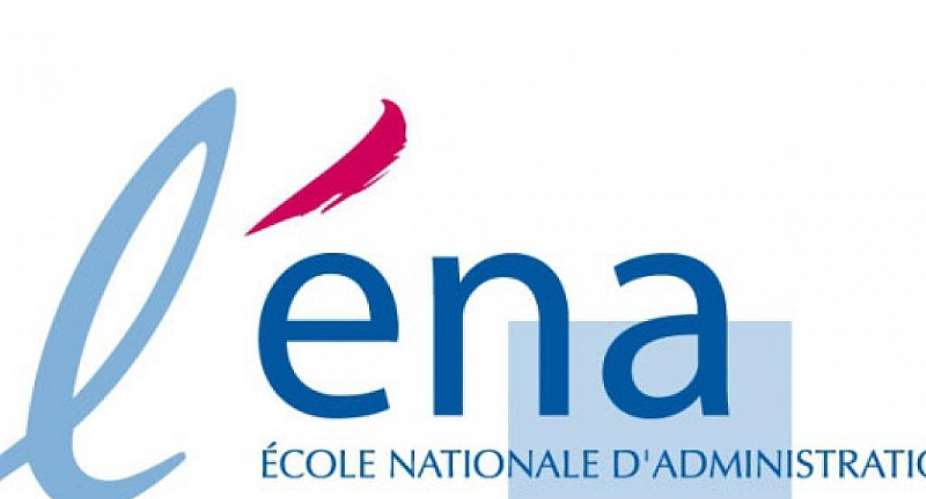Both admired and loathed as the training ground for France's political leaders, the Ecole Nationale d'Administration will learn Thursday whether it is to be scrapped by President Emmanuel Macron for being a symbol of out-dated elitism.
Macron is the fourth president since World War II to have passed through the halls of ENA that count his predecessors Valery Giscard d'Estaing, Jacques Chirac and Francois Hollande among its illustrious graduates.
But Macron might be the last if he decides to go ahead with plans to ditch the post-graduate school in Strasbourg in a speech later Thursday intended as a response to months of anti-government protests.
ENA graduates, known as Enarques in France, form a network of influence that stretches across the top echelons of politics and business, making it a target for critics of the French establishment for decades.
But its success in producing highly-qualified public administrators, most of whom go on to hold senior jobs in ministries or public bodies, has spawned copycat institutions in other countries, including in Russia.
"The French are aware that their administration is rather well managed, competent, neutral and not politicised, and all of that we owe in part to ENA," Daniel Keller, who heads an association of former students, told AFP.
In a national address he was due to make last week but which was shelved when the Notre-Dame cathedral caught fire, Macron was to announce the scrapping of the school on the grounds it was failing in its mission.
Spare us, director pleads
It was created in 1945 in the aftermath of World War II when France needed to rebuild its civil service, parts of which had collaborated with France's Nazi occupiers during the conflict.
It succeeded initially in opening up the vast public administration to people drawn from different backgrounds, rather than the old aristocracy which had traditionally dominated the French state.
But in recent decades, studies have shown its intake narrowing increasingly to the children of wealthy families, often those with past links to the school, despite an entrance exam which is open to everyone and supposedly meritocratic.
Patrick Gerard, the school's director, acknowledged on Wednesday that only 19 percent of current students had a parent from a blue-collar background.
"We need to do better," he said in a column for Le Figaro newspaper which pleaded for the school to be spared.
Closing ENA?
According to a leaked copy of Macron's speech last week, he was going to justify closing ENA on grounds that public institutions should offer "chances to all of our young people on the basis of merit and not their social or family origins".
The 41-year-old is set to respond to months of protests by "yellow vest" demonstrators on Thursday by announcing a slew of policy measures to respond to their anger.
Reports suggest the French leader may have had a re-think about ENA and will back a reform of the institution and its entrance process and criteria, rather than an outright closure.
When Macron was studying there, his year group was highly critical of the management of the school.
At the end of their two years of study and work experience, the graduates wrote a letter denouncing the teaching methods and intake.
But as a presidential candidate, Macron frequently defended his alma mater, saying he had won a place there through hard work, not connections, given that his parents were doctors in provincial France.
Since the address was leaked, Macron has been accused of demagoguery by some critics who say closing ENA will do nothing to resolve the underlying problems of inequality in French society.
Former president Francois Hollande on Wednesday recognised the need for reform but warned against the school's closure: "I went to this school, I do not repent. I do not scourge myself by saying 'it's terrible, I went to this school'."
David Guilbaud, a French administrator who has written a book about ENA, said closing the school was "a very good bit of PR but one that does not resolve the problem of how to train the top civil service."





 Meta releases new version of conversational AI across its platforms
Meta releases new version of conversational AI across its platforms
 Cape Town named Africa’s Best Airport 2024 by Skytrax
Cape Town named Africa’s Best Airport 2024 by Skytrax
 Bono East: Four injured after hearse transporting corpse crashes into a truck
Bono East: Four injured after hearse transporting corpse crashes into a truck
 ‘Be courageous, find your voice to defend our democracy’ — Sam Jonah urges journ...
‘Be courageous, find your voice to defend our democracy’ — Sam Jonah urges journ...
 Exodus of doctors, nurses and teachers have worsened because of unserious Akufo-...
Exodus of doctors, nurses and teachers have worsened because of unserious Akufo-...
 2024 election: Avoid insults, cutting down people in search of power – National ...
2024 election: Avoid insults, cutting down people in search of power – National ...
 ‘You passed through the back door but congratulations’ — Atubiga on Prof Jane Na...
‘You passed through the back door but congratulations’ — Atubiga on Prof Jane Na...
 Government’s $21.1 billion added to the stock of public debt has been spent judi...
Government’s $21.1 billion added to the stock of public debt has been spent judi...
 Akufo-Addo will soon relocate Mahama’s Ridge Hospital to Kumasi for recommission...
Akufo-Addo will soon relocate Mahama’s Ridge Hospital to Kumasi for recommission...
 We must not compromise on our defence of national interest; this is the time to ...
We must not compromise on our defence of national interest; this is the time to ...
